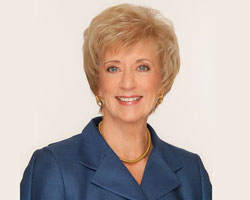Playing Dirty

While presidential contests always get more media coverage, funding and commercial air time than their congressional counterparts, those down-ballot deserve serious scrutiny from environmental voters and activists. Congressional races have traditionally offered an outlet for the discussion of issues well beyond those in the presidential race. President Obama and Governor Romney have largely avoided environmental issues in their stump speeches, preferring instead to focus on short-term economics, but other elections critical to determining which party will control the House and Senate have not escaped the attention of the green movement.
Linda Vs. Murphy
One such race is between Connecticut senatorial candidates Linda McMahon and Rep. Chris Murphy, which has remained tight since last spring’s primaries. Although Connecticut is a blue state, McMahon, a Republican, has a good chance of winning —a prospect that makes the national Democratic establishment nervous. And, perhaps because Connecticut is a blue state, Murphy and McMahon have been forced to take stances on climate change, the Environmental Protection Agency and anti-pollution legislation. The League of Conservation Voters (LCV) recently added McMahon to its “Dirty Dozen” list of politicians, citing her past support for dismantling the EPA and her opposition to climate legislation.
The LCV, announcing its plan to devote $300,000 towards defeating McMahon, also attacked her for swinging wildly back and forth on environmental issues—likely because she is running as a Republican in a blue state. Indeed, the nonpartisan organization OnTheIssues leaves McMahon’s record on the environment blank, although the former CEO of the WWE wrestling franchise has announced her opposition to cap-and-trade and support for increased domestic oil production, especially offshore.
Others Join the Dirty List
Though Mitt Romney himself has joined the LCV’s list, other Dirty Dozen candidates have popped up in races across the country. These include Rep. Joe Walsh (R), locked in a tight race with Democratic candidate Tammy Duckworth for Illinois’ 8th district. Walsh, a self-described Tea Party Republican, is a climate denier who sees climate legislation and the EPA as threats to American freedom—and it should be noted that this ranks low among the numerous controversies his comments have sparked.
Also joining the Dirty Dozen are George Allen, incumbent Republican Senator from Virginia who has a history of cronyism with oil executives, and Josh Mandel, another recipient of hundreds of thousands in campaign contributions from the oil and gas industries running to be the next Republican Senator from Ohio. Both states are home to economies reliant on fossil fuel production, which are by nature environmentally destructive and will prove unsustainable as resources continue to be depleted. Unfortunately, the congressional candidates running against renewable energy in these regions are dooming their constituents to economic domination by a few powerful corporate interests in the short term, and to economic collapse when fossil fuels are no longer abundant in the long term.
For her part, McMahon accuses LCV of being a predominantly Democratic organization, and places herself in the potentially awkward position of defending her own environmental record—or lack thereof. But this illustrates precisely how the LCV’s Dirty Dozen program illuminates a larger political narrative: McMahon, who has faced criticism for how closely her platform matches that of the national GOP, would be a reliable vote for an anti-green agenda were she to win Connecticut’s Senate seat. The same can be said of most other Republican candidates in every election this year, across the ticket from top to bottom. In an election where both the House and Senate are in play, future legislation tackling climate change and promoting renewable energy, as well as protecting environmental regulations that have been in place for decades, is just as much at risk.

